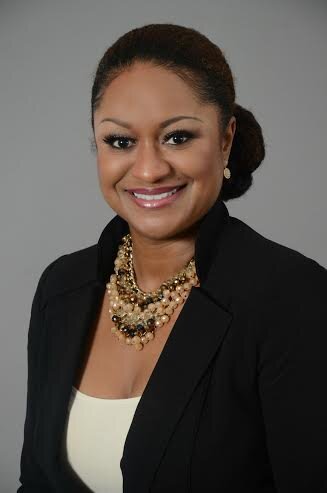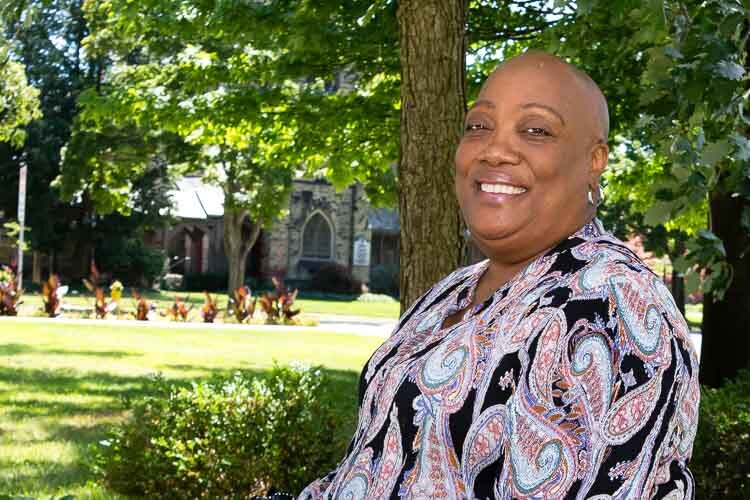City of Kalamazoo gets set for first-ever Civil Rights Board
Seven members of the City of Kalamazoo's Civil Rights Board Local will hear complaints that are to be investigated by the Kalamazoo city attorney or his designee.
Editor’s note: This story is part of Southwest Michigan Second Wave’s On the Ground Kalamazoo series.
When Angela Graham was growing up, dinner-table conversations in her house were a little different than those in many other homes.
“I was born in Fort Wayne, Ind., but we moved with my father’s career,” says Graham, who is now, officially, Dr. Angela Graham-Williams. Her father, James C. Graham Jr., was an administrator with the National Urban League, working as chief executive officer for that civil rights organization in five different cities during his career.
“He was in Madison, Wis., Pontiac, Mich., and Battle Creek, Mich.,” Graham-Williams says. “We spent time living in Fort Wayne, but he received a promotion to the Birmingham, Ala., office when I was a very young girl. So I spent my formative years in Birmingham – and I consider myself a southerner.”

Now the chief development officer for the Historically Black Colleges and Universities Campaign Fund and the married mother of two, Graham-Williams says, “Civil rights and social justice is in my blood” and familial commitment to that work predates her birth.
“My grandfather, Dr. James C. Graham Sr., was the first (African-American) physician in our hometown of Fort Wayne, Ind., back in the time when we didn’t always have access to health care,” she says. “We, as African-Americans, didn’t always have access to health care and he devoted his life to providing our people with those services.”
Rather than lamenting the problems of minorities and the poor, their conversations often were about the roles individuals can play to effect change.
“And so you couldn’t have grown up in our family without understanding that as African-Americans — because of the achievements of our forefathers — we grew up in a certain level of privilege that those who look like us don’t always have,” Graham-Williams says.
Those who grow up with the benefit of family support, education, and opportunity cannot do so “without realizing that your life is not just your own, but you have a responsibility to those who are following in your wake,” she says.
That made her jump at the chance to join the City of Kalamazoo’s first-ever Civil Rights Board. To help in the fight against discrimination, the City of Kalamazoo has impaneled its first Civil Rights Board.
“We always had Chapter 18, the civil rights ordinance,” Dorla Bonner, says of the local law that protects people who feel they have been discriminated against – in terms of public accommodations, employment, disability, or other rights. “But we never had a sitting board whose responsibility was to manage this ordinance.”
Bonner is director of diversity, equity, and inclusion for the City of Kalamazoo.
The Kalamazoo City Commission approved an upgrade of the ordinance in September, to add Chapter 18(a), known as its Fair Housing Ordinance. It outlines housing rights in the city and creates the Civil Rights Board.
Bonner worked with Kalamazoo Mayor David Anderson, Vice Mayor Patrese Griffin, and Commissioner Jeanne Hess to nominate individuals to serve on the seven-member board. Their recommendations, which included the appointment of Graham-Williams, were approved by the city commission on Nov. 2. Bonner will now work with the board to help it achieve its goals.
“The goal of the Civil Rights Board is to, No. 1, hear complaints,” Bonner says. And then make recommendations to the city manager, following investigations into the complaints.

Local complaints are to be investigated by the Kalamazoo city attorney or his designee. In those cases, the Civil Rights Board will review the results and make a recommendation of what should happen to the city manager. Resolutions could include executing fines for those found in violation of the ordinance, suggesting conciliations the two parties may explore, or other things.
Complaints that involve a violation of state or federal laws, will be referred to the Michigan Department of Civil Rights or the Fair Housing Center of Southwest Michigan.
“If people feel they have been discriminated against, they can file a complaint,” Bonner says, “And it will be investigated and the results of the investigation will go to the Civil Rights Board.”
The board’s second main responsibility is community outreach; making sure people know their rights.
“The Civil Rights Board is tasked with making sure the community knows about this ordinance, knows their rights, and knows how to file a complaint,” Bonner says. “That is their ongoing work.”
She says, “We were looking for people who had actual experience in civil rights and public accommodations and disability and housing, as well as lived experience. We have an attorney. We have a human resources professional and some folks who have worked in housing. But we also wanted it to be representative of our whole community, so we have African-American, White, Latinx, and LGBTQ. And then we have somebody who’s a real estate professional and has been in property management.”
The members of the inaugural Civil Rights Board are:
• DeShawn Houston — The 31-year-old African-American male who has 10 years of experience in the financial industry. He has a bachelor’s degree in organizational management and a master’s degree in business administration (executive leadership). Bonner says he was chosen as a representative of African-American youth.
• Jessica Glynn — The 39-year old White female is an attorney representing survivors of domestic violence, sexual assault, and a wide range of matters including discrimination based on their victimization and conviction history. She is chairperson of the ACLU Lawyers Committee for Southwest Michigan and provides advocacy on a myriad of civil liberty issues. She has a bachelor of arts and Juris doctorate degrees in law. Bonner says she was chosen for her knowledge of the law and legal experience.
• Marissa Harrington – The 37-year old African-American female has worked as a Realtor for five years, including two years in property management. She has a bachelor’s degree in fine arts and has been an advocate for housing equity and homeownership. Bonner says she was chosen for work in real estate and housing.
• Gabriela De La Cruz – The 29-year-old Latina is currently a stay-at-home mother and has connections with undocumented community residents. She is a former Section 8 voucher holder. Bilingual in Spanish and English, she has personal experience with housing discrimination and discrimination in general. She is working to earn her bachelor’s degree in meteorology and climate science. Bonner says she was chosen as a member of the Latinx community and because of her lived experience.
• Jacob Beach – The 28-year-old White male who is a gay man with a husband. He is a program director for a local housing organization that works with federal and state housing funders, including overseeing housing supportive services programs. He has a bachelor’s degree in Organizational Communication and a master’s degree in public administration (nonprofit management). Bonner says he was chosen as a member of the LGBTQIA community and for housing work.
• Janeen Brown – The 41-year old female with a heritage of two or more races has more than 10 years of experience working in human resources. She has a bachelor’s degree in biomedical science and chemistry and a master’s degree in pharmacology and toxicology. She also has a certification in Supervisory Leadership. Bonner says she was chosen because of her human resources experience.
• Dr. Angela Graham-Williams – The 46-year-old African-American female is the chief development officer for the HBCU Campaign Fund. She has more than 20 years of experience advocating for equity-based programs and is a licensed professional counselor and psychologist and board-certified clinical supervisor. She has undergraduate, graduate, and doctoral degrees in psychology. Bonner says Graham-Willaims was chosen for her advocacy experience.
Houston, Graham-Williams, and Glynn were appointed to three-year terms. Harrington and De La Cruz were appointed to two-year terms. Beach and Brown were appointed to one-year terms.
Board members are presently taking civil rights training and fair housing training with the Michigan Department of Civil Rights to prepare themselves for the work ahead. A lot of that work will start in earnest when the board meets for the first time – albeit digitally – on Nov. 23.
“We haven’t even met yet as a board,” Bonner says. “Our first meeting will be the 23rd of the month (of November). It will be a public meeting so there will be (posted public) notice.”
Graham-Williams says her family relocated to Birmingham when she was about 8 years old.
“So we grew up marching on the first Martin Luther King Jr. Day,” she says, “to commemorate the bombing of the 16th Street Baptist Church. You could not have grown up in our family without being ‘woke’ as they call it now and having social justice and civil rights in our blood.”

















